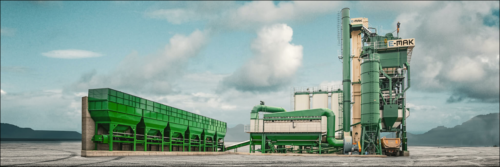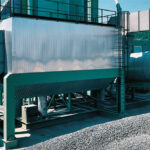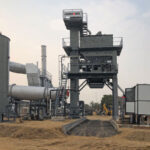
Asphalt plants are intricate ecosystems where precision and the right equipment are paramount for smooth operations. Within this complexity, one component stands out in significance—the filter system. Filters play a pivotal role in ensuring the quality of the final asphalt mix and guaranteeing compliance with stringent environmental regulations. Choosing the appropriate filter for your asphalt plant is more than a matter of operational efficiency; it’s about reducing your environmental footprint. In this comprehensive guide, we will lead you through the process of selecting the ideal filter for your asphalt plant.
1. Know Your Asphalt Plant
Before diving into the world of filters, it’s crucial to understand your asphalt plant’s specifications and requirements. Factors like plant size, production capacity, and the types of aggregates you use will influence your filter choice. Larger plants with higher production volumes may require more robust filter systems, while smaller plants can suffice with simpler solutions.
2. Determine the Type of Filter
There are several types of filters commonly used in asphalt plants, each with its advantages and disadvantages. The main types include:
- Baghouse Filters: These fabric filters are highly effective at capturing fine particles and are the most common choice for asphalt plants.
- Cartridge Filters: These cylindrical filters offer excellent dust removal efficiency and are suitable for various industrial applications.
- Wet Scrubbers: In addition to dust removal, wet scrubbers can help control emissions by using water to capture and neutralize pollutants.
Your choice of filter type should align with your asphalt production needs and environmental compliance goals.
3. Consider Temperature and Chemical Compatibility
Asphalt production involves high temperatures and chemical reactions. Ensure that the filter material you choose can withstand these conditions without degradation. Temperature resistance and chemical compatibility are critical factors in filter selection.
4. Evaluate Efficiency and Emission Control
Efficiency matters in asphalt production. High-efficiency filters ensure that dust and particulate matter are captured effectively, maintaining the quality of the asphalt mix and minimizing maintenance requirements. Additionally, consider filter options that help control emissions, contributing to environmental responsibility and compliance with regulations.
5. Plan for Maintenance
Filters are not “set and forget” components. They require regular maintenance to ensure they continue functioning optimally. Consider the ease of access and maintenance requirements when selecting a filter system. A well-maintained filter extends its lifespan and reduces operational costs.
6. Budget Considerations
While it’s essential to choose a filter that meets your plant’s needs, budget considerations are also crucial. Balance the upfront cost with long-term benefits and operational efficiency. Remember that investing in a quality filter system can lead to cost savings over time.
Conclusion
Selecting the right filter for your asphalt plant is a decision that impacts not only your plant’s performance but also its environmental footprint. By understanding your plant’s requirements, considering filter types, and evaluating factors like temperature resistance and efficiency, you can make an informed choice. Regular maintenance and budget considerations should also be part of your decision-making process. With the right filter in place, you’ll optimize your asphalt production and contribute to a cleaner environment.

